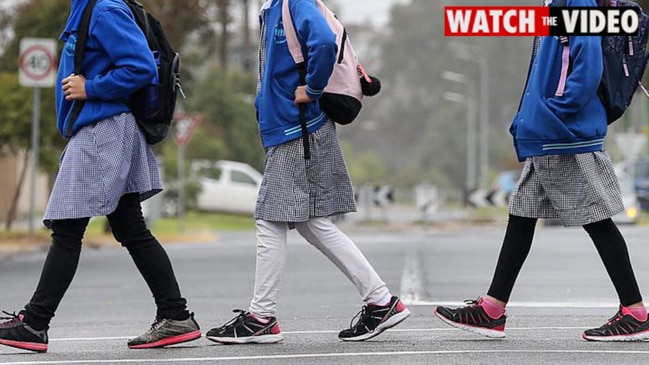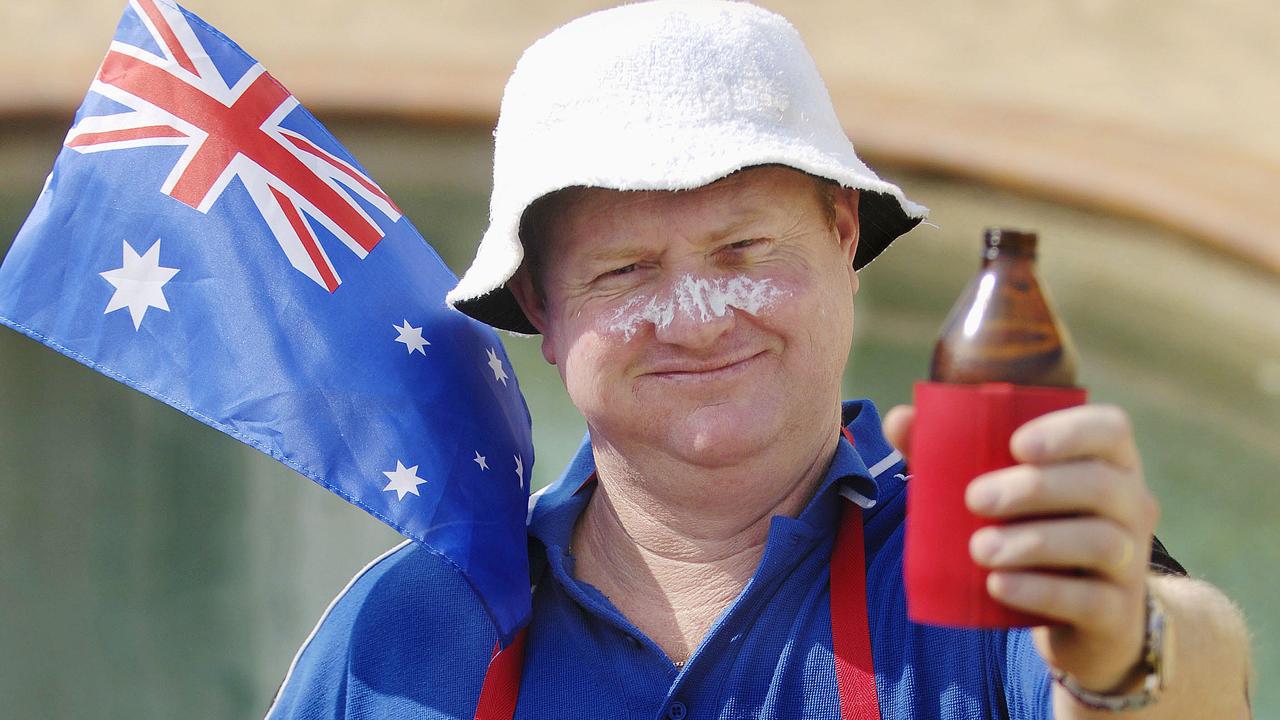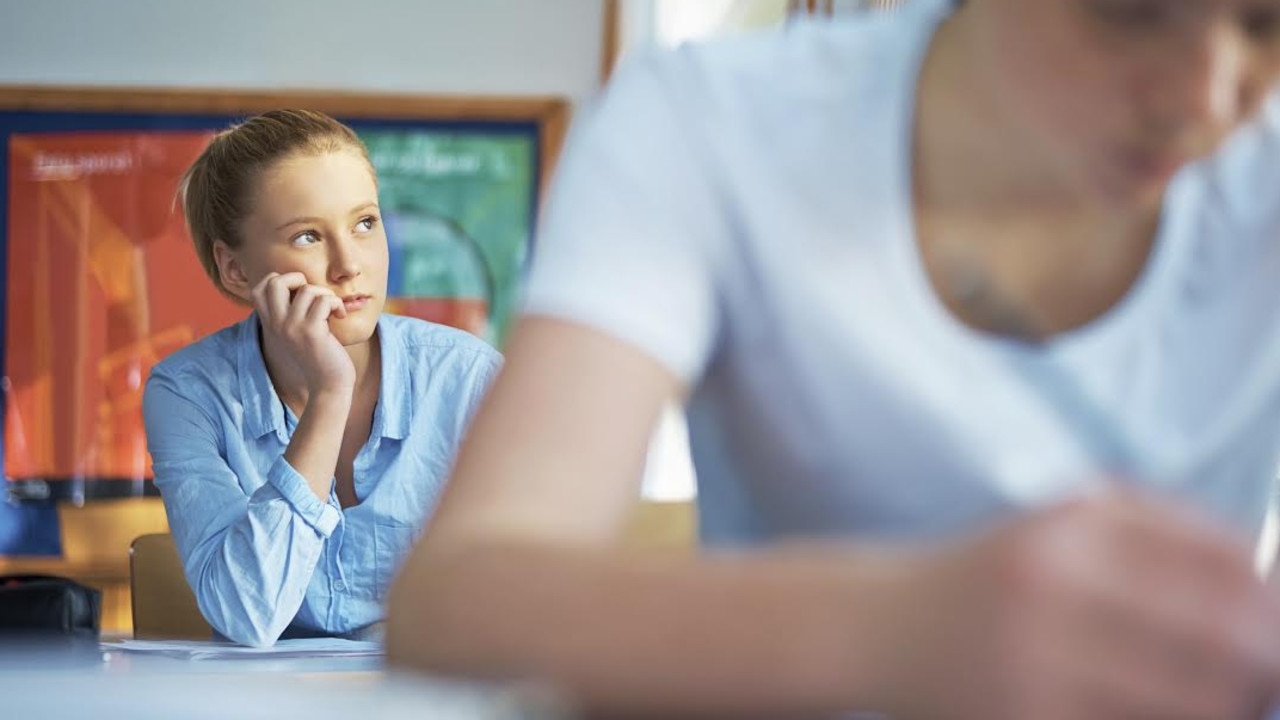Al-Taqwa abuse shows how racist Victorians are
A fake Wikipedia page labelling Al-Taqwa a school which “specialises in spreading Covid” is among the racist taunts that must be condemned.

Susie O'Brien
Don't miss out on the headlines from Susie O'Brien. Followed categories will be added to My News.
Racism against Muslims, particularly those from Al-Taqwa College, is abhorrent and must be condemned.
The emergence of another outbreak at the Truganina school, which was linked to more than 200 cases in a major cluster last year, has highlighted the racist bigotry latent in our community.
Those who wouldn’t normally identify as racist or anti-Muslim are exchanging memes and messages.
A recent one is a fake Wikipedia entry mocked up to look like the real thing.
“Al-Taqwa College is a primary and secondary school located on Sayers Road, in Truganina, outside Melbourne, Australia. The school specialises in spreading Covid to the community and is the source of 2 separate Melbourne lockdowns,” it reads.
Another is a fake NSW public health alert.
“New and updated case locations in NSW. Muhammed’s house, Abdul’s house, Ali’s house, Ibrahim’s house, Omar’s House, Youseff’s house, Fatima’s house”.
People are even going out of their way to ensure their bigoted views reach members of the community.
“Why did your school cause 2 corona outbreaks?” one social media comment reads.
“Bit weird that the school has had 2 major outbreaks. Stop making excuses,” says another.
Islamic leaders say racism is often directed towards them in public places but spikes at times like these.
There’s no doubt a cultural divide exists between some fundamentalist Muslims and those with Anglo backgrounds, but difference is no excuse for bigotry.
At this point two issues are fuelling the division.
The first is the perception that Muslims haven’t responded quickly enough to Covid outbreaks in Victoria.
As the location of two outbreaks in consecutive years, Al-Taqwa College is the subject of intense scrutiny.
I understand the resentment. The cluster started when a teacher at the school, who was diagnosed on June 27, continued working for three days despite suffering mild flu-like symptoms.
Although others have done the same — and worse — Islamic people have long been unfairly judged as members of their culture rather than individuals.
Some of this ill will arises from the school being slow to respond to the Covid threat last year, with one insider admitting it “put up the barricades”.
This is nothing new. Before Covid, non-Muslims would only identify the school for reportedly not allowing girls to play sport for fear of losing their virginity.
In 2020, the principal did not respond to questions from the media until a week after the first positive result, when the cluster had reached 59 cases.
Reports were also circulating that gathering and social distancing rules were not followed during end of Ramadan celebrations and people were refusing to get tested.
Concerned Westerners took the Islamic maxim of “What Allah has planned for us no one can stop it” to mean that Muslims did not think they had to follow Covid restrictions.
While this was not true for all, it was true for some.
This time around there has been much better communication and the school’s response has been exemplary.
A testing rate of 90-plus per cent within days is much better than the elite Trinity Grammar community, which battled an outbreak last month.
And yet it’s clear there is still some confusion, with parents reporting mixed messages from authorities and targeting from anti-vaxxers.
Well-placed government sources also say early positive cases were not forthcoming about their movements, frustrating the efforts of contract tracers.
The school’s reputation for not being open and transparent last time isn’t helped by the decision to only allow students from Al-Taqwa College aged 16 and above to receive the Pfizer vaccine.
Although this edict came from the Department of Health and not the school, it invariably breeds dissension and disquiet.
This is a second area fuelling division between school members and others.
People who live in the streets and suburbs around the school waited three hours to line up at the school vaccination centre, only to be turned away.
Some of them attend other schools with Covid-positive cases and rightly feel they, too, should be vaccinated alongside Al-Taqwa community members.
As testing sites and vaccination centre waiting lists surge in light of the expansion of the AstraZeneca vaccine to 18 to 39-year-olds, this singling out of one school is the cause of much dissatisfaction in the area.
The concentration of cases in areas with high numbers of Muslims obscures the fact that Islamic people are not over-represented in the coronavirus caseload.
And yet Islamic leaders are still worried they are not reaching everyone, saying larger families can be more difficult to test and track.
Despite the high Al-Taqwa testing rate, there are still concerns some people are not getting tested.
Not everyone is doing the right thing, but much is being done in schools, mosques and community groups to get the messages through.



